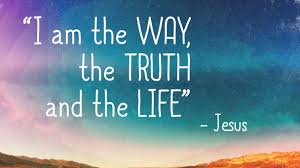A Baylor professor says religious campaign rhetoric is likely to increase between now and November as more conservative evangelicals get over their initial reservations about electing a Mormon as president.
By Terry Goodrich
A new political ad by presidential candidate Mitt Romney accusing President Obama of “waging war on religion” is an opening salvo in religious rhetoric that likely will escalate as the November election approaches, says a Baylor University political expert and author.
Andy Hogue, a lecturer in Baylor’s department of political science and author of the new book Stumping God: Reagan, Carter, and the Invention of a Political Faith, said before now “a bit of a truce” existed between the two candidates when it came to talking about religion.
“In the eyes of a lot of religious voters, both men have religious skeletons in the closet,” Hogue said, “Romney with his Mormonism and Obama with the Jeremiah Wright flap that was so prominent in the last election, as well as the rampant misunderstandings about his faith.”
Romney’s new ad, however, poses the question “Who shares your values?” and claims that Obama’s healthcare plan forces religious institutions to go against their faith.
Hogue said the ad represents a shift away from what has been Romney’s major focus – the economy – to appeal to religious voters. Hogue said religion as a political issue had slipped beneath the radar since the primaries, when attention was focused on Romney’s Mormonism.
“Neither candidate has seemed eager to play up religion, but that truce wasn’t likely to last long, not with so much outside spending in this campaign,” Hogue said.
The ad shows color video of Romney last month on his visit to Poland, including an excerpt from a speech he gave there. “In 1979, a son of Poland, Pope John Paul II, spoke words that would bring down an empire. Be not afraid,” Romney said.
The ad shows the pope speaking with ex-Polish President Lech Walesa, former leader of the labor movement that helped end Communist rule, and a video of Walesa and Romney shaking hands. The screen’s text says the ad is endorsed by Walesa, and a voice asks, “When religious freedom is threatened, who do you want to stand with?”
Hogue noted the subtle way the ad compares Pope John Paul II’s fight against Soviet Communism and its hostility to religion with American voters’ fight against Obama.
“The Obama administration becomes, in effect, the new ‘evil empire.’ Given many religious voters’ skepticism about Romney’s Mormonism, this is a smart way for him to deflect that skepticism and turn the focus to Obama,” Hogue observed.
“If the voters who cared most about a candidate’s faith were skeptical of Romney’s faith, it’s no surprise that his Mormonism became a big issue in the primaries,” Hogue said. “But Romney won, and given the alternative of Obama, a lot of evangelicals have decided it better to coalesce around a Mormon than a Democrat.”
Hogue noted that sparring over religion’s role in government became commonplace beginning in the 1980 election, when Ronald Reagan, Jimmy Carter and John Anderson charted new territory by appealing overtly to voters’ religious sensibilities and making public their religious commitments.
“We’ve seen that question posed, in one way or another, in every election since,” he said.

